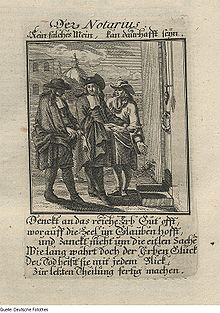Notary Services
An important and ancient principle in claiming your rights and protecting your property is the principle of having witnesses other than yourself that can testify to the validity of whatever rights you’re claiming. Religious texts call this the “law of witnesses”.
This might be in relation to communicating a claim of your natural rights or in claiming enforcement of a contract you’ve made with someone else.
When you notarize any contract, claim or testimony, governments acknowledge it as a valid contract that is enforceable upon the parties which signed it or permissible as evidence of a claim being made. In the United States, and in each individual state, the protection of private contracts is one of the highest constitutional rights that everyone has. Knowing how to use this right properly is one of your best tools in standing for all of your rights.
Getting a witness is not you asking for permission from another party, as your rights come from God and you don’t need someone’s permission to claim them. Witnesses are someone who can testify that they know you’ve made a contract or they know you’ve made some kind of claim. For example, if you’ve made a handshake deal with a friend in a room full of 20 people that all saw you make the deal, then those 20 witnesses become a valuable tool of enforcement should either of you break the deal. However, relying on the memory of witnesses can become less reliable over time. To resolve this we can write our contracts or claims down on paper, and strengthen the claims by having witnesses sign their names to the same paper. The notary’s job is now to add a final testimony (or witness) that they verified all the people signing the paper are real and their identities were confirmed at the time of signing. This allows strangers who were never there to verify the claims with a high level of trust many years later.
A properly notarized statement on paper can even be used as supporting evidence in a court of law, without the witness being present. This type of statement is known as an affidavit.
The law of witnesses has always been a part of the Lord’s work on earth. This law states that “in the mouth of two or three witnesses shall every word be established” (2 Cor. 13:1; see also Deut. 17:6; Deut. 19:15; Matt. 18:15–16; John 8:12–29). This witness confirms that certain events took place and that God-given doctrine and principles are true.



The history of the notary public is closely related to the early Catholic Church. Tiro, a secretary for the orator and statesman Cicero in Ancient Rome, developed a shorthand system named nota, used by the Roman notarius, or notary. The Romans used notaries in lands they conquered.
The Church developed its own system of notaries, especially following the decline of the Roman Empire.
The most ancient figure with some similarities in his function to the notary, was the Egyptian scribe, who would draw up State documents and sometimes also those of private individuals. These texts were valid only if they bore the seal of a priest or a magistrate of similar hierarchy. The Hebrew ‘scribes of the people’ would draw up various transactions and private documents, such as divorce certificates.
However, the direct precursors of notaries were unquestionably the Greek ‘syngraph’ and Roman ‘tabularius’. These figures provided the basis for the initial emergence of the profession in the 12th century, at the University of Bologna. The foundations for the scientific Notariat were summarised and disseminated throughout Europe by means of the ‘Summa artias notariae’ of Rolandino, a famous teacher and notary in the Italian city.
One English historian, John Kenneth Hyde, praises notaries, saying, “The historian approaches Italian history in the thirteenth and fourteenth centuries almost exclusively through the writings of notaries.”

Members of Mount Zerin Ministries with an active monthly donation can utilize Mount Zerin’s notary services for free in Utah.
For members and non-members without an active monthly donation, you can contact us to schedule a mobile notary. Fees include $10/signature and a reasonable traveling fee.
